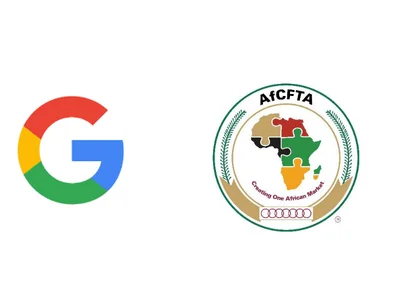Google and AfCFTA Secretariat announced a programme to train 7,500 African SMEs in digital and AI skills. Africa’s single market cannot function if the businesses meant to power it do not have the tools to trade across borders. AfCFTA can lower tariffs, open borders and harmonise rules, but none of that matters if SMEs cannot market online, process digital payments or manage cross-border operations with basic automation.
Google is stepping in with its Hustle Academy infrastructure and AI tools, while AfCFTA provides the policy backing and continental reach. Together they are trying to fix the weakness that has slowed AfCFTA since day one. The bloc needs millions of digital-ready SMEs. It is starting with a few thousand, but the signal is clear. Digital competence is now part of trade infrastructure.
Why SMEs Are Struggling To Participate In AfCFTA
Across the continent, most SMEs are operating with limited digital capability. Many still rely on manual bookkeeping, offline customer engagement and fragmented logistics processes. When these businesses try to move goods across borders, the gaps become obvious. Documentation takes too long. Marketing never extends beyond local markets. Payments are hard to reconcile. Basic tasks that should be automated take hours or days.
This is not a small issue. SMEs make up the majority of Africa’s private sector. They employ millions and drive local economies, yet they rarely have the digital tools needed to participate in regional trade. AfCFTA’s promise of a unified market depends on these businesses being able to operate with the same digital fluency that competitors in other regions take for granted.
The skills gap has become a structural barrier. Until SMEs can manage inventory digitally, create export-ready documentation, use AI to streamline operations and sell beyond their home countries, AfCFTA cannot reach its full scale. That is the gap Google and the AfCFTA Secretariat want to close.
Why Google’s Role Matters And Why AfCFTA Needed External Capacity
Google did not appear in this story by accident. The company already runs Hustle Academy, a training programme that has supported tens of thousands of African SMEs since 2022. It has the curriculum, trainers and infrastructure to deliver digital skills at scale, and it can do it across multiple languages. AfCFTA, on the other hand, has the policy ambition but not the operational machinery to train thousands of businesses across a continent as diverse as Africa.
That is why this partnership works. AfCFTA needs a partner that understands how SMEs actually behave online and what tools they need to scale. Google needs a policy body that can embed those skills into a continental trade strategy. It is a practical pairing rather than a symbolic one. AfCFTA provides legitimacy. Google provides delivery. Without that combination, the programme would struggle to reach real businesses, not just conference rooms.
There is also a strategic layer. Big Tech companies are increasingly positioning AI as a tool for productivity and trade, not just creativity. By entering through AfCFTA, Google places itself inside the infrastructure of the continent’s single market. That gives the programme more weight and gives African SMEs access to tools that were previously out of reach.
What The Digital Training Actually Changes For SMEs
The programme targets the exact operational gaps that hold many African SMEs back. Basic AI tools can automate invoices, organise export documentation and monitor stock levels. Digital marketing training helps businesses reach customers in neighbouring countries instead of relying on walk-ins. Cloud tools simplify accounting and customer management. Logistics modules teach owners how to navigate cross-border delivery and digital payment reconciliation.
For SMEs that have never worked beyond their home market, these tools can reduce friction immediately. A business that can generate product catalogues, automate customer follow-ups and process payments online becomes export-ready in a way that paperwork alone could never achieve. The skills also reduce dependency on manual processes that slow down operations and increase error rates.
With the right digital and AI tools, SMEs gain visibility, speed and the ability to operate across borders without expanding their physical footprint. That is the kind of transformation AfCFTA needs if its single market is going to function beyond official speeches and policy documents.
Skills As Trade Infrastructure
The partnership between Google and the AfCFTA Secretariat is not big enough to transform Africa’s SME landscape on its own. Seven thousand five hundred businesses are a fraction of the millions that make up the continent’s private sector. But the programme matters because of what it represents. It treats digital skills as part of the infrastructure needed to run a continental market, not as an optional add-on for ambitious entrepreneurs.
If AfCFTA is going to work at scale, SMEs must be able to handle documentation, payments, logistics and customer acquisition in a digital environment. This programme sets that expectation and begins building the capacity that has been missing. It also shows a template for future collaboration, where policy bodies and technology companies combine what they each do best.
The direction is clear. Africa’s trade growth will depend on how quickly its SMEs can master the digital and AI tools that define modern commerce. This partnership is a small step toward that future, but it sends the message that digital competence is no longer a bonus. It is the entry requirement for participating in the continent’s single market.
















